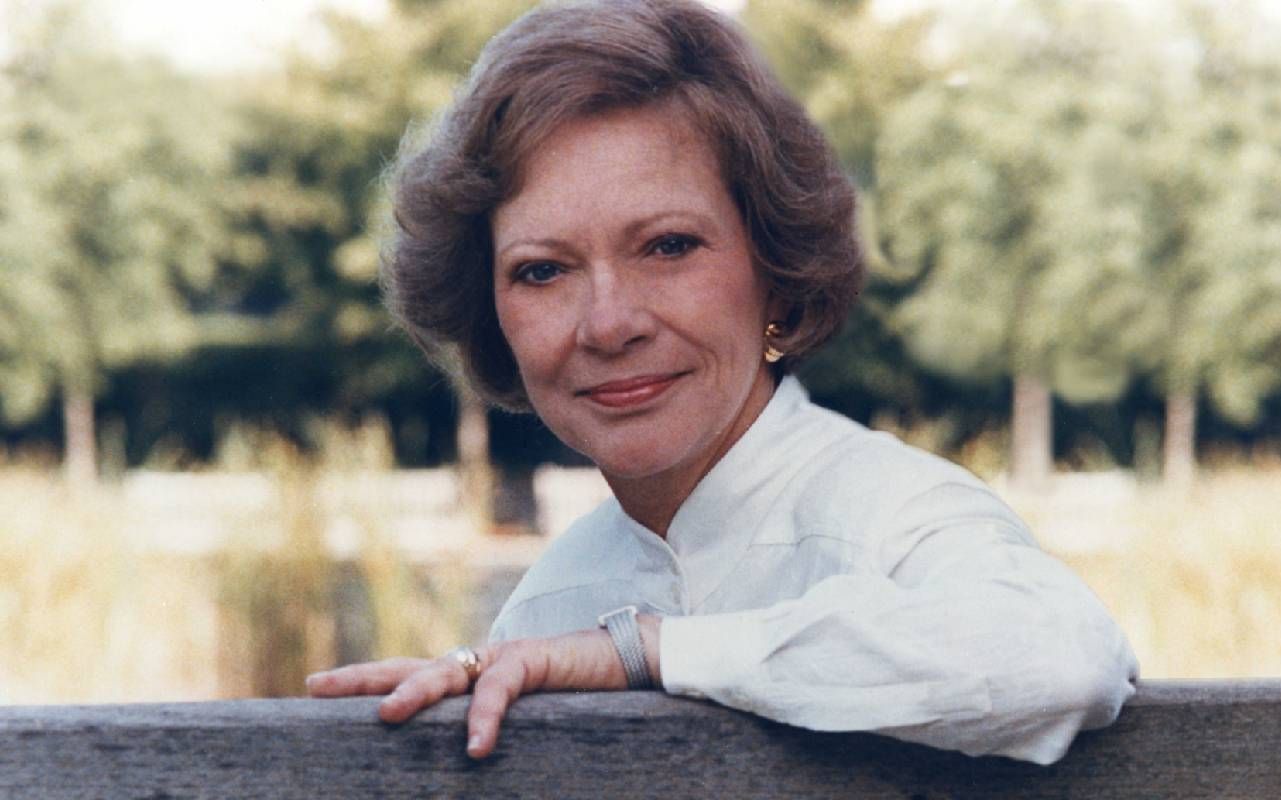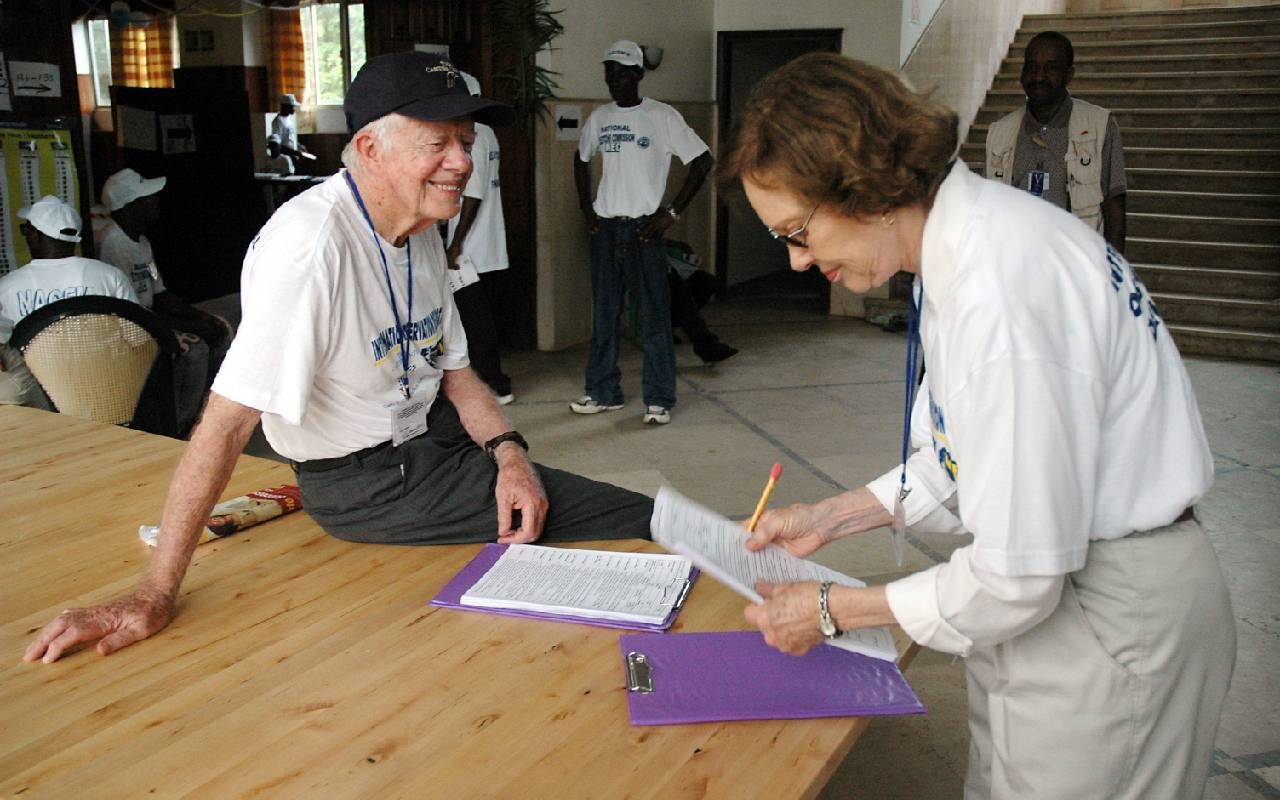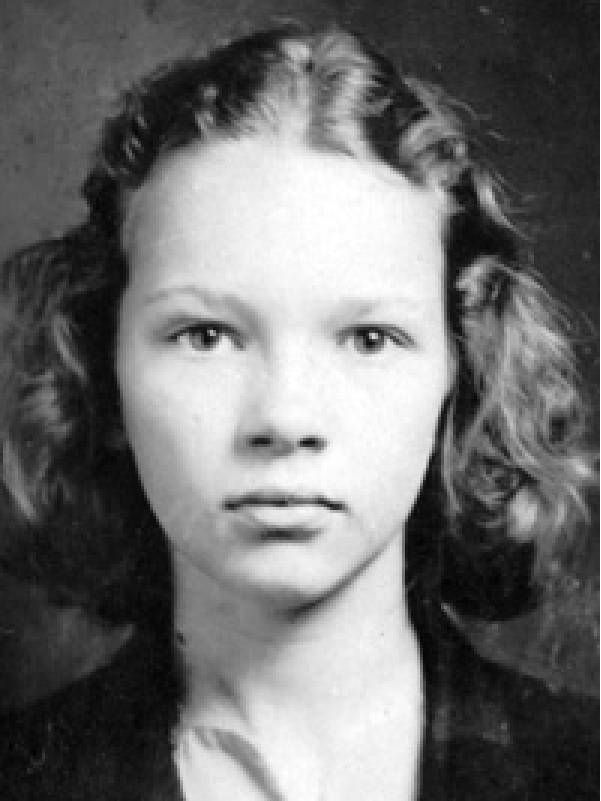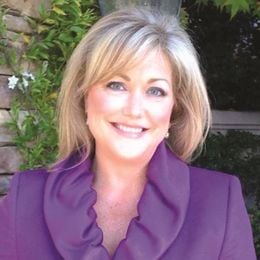The Passing of a Caregiving Pioneer: Rosalynn Carter
The former First Lady died at age 96 after a lifetime of being a champion for caregivers
It seems almost fitting that the announcement November 19 that former First Lady Rosalynn Carter took her last breath at age 96 is in the same month we are celebrating National Family Caregiver Month, for her passionate advocacy for caregivers is a cornerstone of her remarkable legacy.

Some news stories have defined her as a "steel magnolia" based on her Southern charm and gentle demeanor coupled with her strength and independence. It is her fiery loyalty and sage advice that made her the valuable partner to former President Jimmy Carter, her husband of 77 years. Together they forged a path of global humanitarian work for The Carter Center and Habitat for Humanity.
However, it was her solo mission to put the national spotlight on those with mental health issues, on older adults and especially on the physical and emotional health issues impacting America's 53 million family caregivers today. For many, these are Mrs. Carter's career crowning achievements.
The First Lady Becomes the First to Tackle Mental Health and Caregiving
In the '60s and '70s when Jimmy Carter was running for and eventually became governor of Georgia, Mrs. Carter made mental illness her special cause. As First Lady she testified before Congress in 1980 (only the second First Lady to do so since Eleanor Roosevelt) to secure approval for the Mental Health Systems Act, dedicating more federal money to local centers for treating mental health.
"If only we could consider mental illnesses as straightforwardly as we do physical illnesses, those affected could seek help and be treated in an open and effective way."
But policy change was only part of her mission. In 1996, she created the Rosalynn Carter Fellowships for Mental Health Journalism, based at The Carter Center, to encourage journalists to shed light on the subject and help remove the stigma associated with mental illness.
She had said, "I wanted to take mental illnesses and emotional disorders out of the closet, to let people know it is all right to admit having a problem without fear of being called crazy. If only we could consider mental illnesses as straightforwardly as we do physical illnesses, those affected could seek help and be treated in an open and effective way."
Back in the 1980s after Mrs. Carter had left the White House, she continued to be on the national stage as a pioneer in advocating for family caregivers. She convened the first national conference on this special population and in her tenacious yet charming way Mrs. Carter used her influence across private and public sectors to bring together government agencies, nonprofit organizations, for-profit businesses and family caregivers to develop collaborative ways to support caregivers at home and in the workplace.
"We did our first conference on burnout and people were crying in the audience saying this was the first time someone understood what they were going through," Mrs. Carter told me during a 2012 interview. "People don't want to admit that they are caregivers; they feel it is just their responsibility to care for a mother or a grandmother but they also have to recognize the need for help and be willing to receive help."

Not only was she the first national figure to put the spotlight on caregiving, she was also the first to establish a caregiving institute at a university, the Rosalynn Carter Institute for Caregivers (RCI), in 1987. The RCI continues to conduct research, pilot programs and to collaborate on caregiving education, support and advocacy especially for the caregivers of military veterans and caregivers who, as she did, juggle caregiving and work at the same time.
"Our hearts are heavy as we mourn the loss of our founder along with the Carter and Smith families, residents of Plains, Georgia, and a worldwide audience who loved her," shared Jennifer Olsen, CEO of RCI. "When she founded the institute 36 years ago, it was based on her unique vision of being able to see the big system changes that were needed but also to listen to and care about individual caregivers she met in the community. She wanted to ensure we never lost sight of the personal stories and needs of caregivers even as we advocate for support with policymakers and CEOs in the boardrooms."
Olsen said Mrs. Carter left an assignment list for RCI staffers that included her hope to create a national office for caregiver health. She also wanted to reframe the caregiving experience as not tied to the care receiver's diagnosis, whether that be cancer or Alzheimer's or other condition.
Her hope was to transform caregiver support in the same way she pioneered the recognition of family caregivers more than 40 years ago. She felt although caregiving journeys are not one-size-fits all, there are consistencies of needing to address the human condition of stress, isolation, loneliness and the need to have a supportive care team, that are similar to all caregivers. Olsen said the RCI team is hard at work on fulfilling Mrs. Carter's vision for a better future for caregivers.
Her Life Was a Journey in Caregiving
Rosalynn Carter became famous for her caregiving declaration, "There are only four kinds of people in this world: Those who have been caregivers, those who are caregivers, those who will be caregivers, and those who will need caregivers." She knew these words all too well as she was a lifelong caregiver for family members.
She was thrust into her first caregiving role at age 13 after her father died and she was recruited to care for her younger siblings while her mother worked to feed the family. While she took on her caregiver role willingly and also helped with the household finances by taking on seamstress work, Mrs. Carter also recognized the emotional impact of losing her father and losing her childhood all at once.

"I still vividly remember going to my secret hiding place, the outdoor privy, if you can believe that, to cry," she told a Congressional Committee on caregiving.
Since her earliest caregiving roles, she has also cared for several relatives who had cancer after she left the White House, and she was a caregiver for her mother, who died in 2000 at age 94. In her book, "Helping Yourself Help Others: A Book for Caregivers," Mrs. Carter writes, "We can learn to approach caregiving as a blessing as well as a challenging task."
After years of caring for others, Mrs. Carter was being cared for by family especially after announcing her dementia diagnosis earlier this year. On November 17, she entered hospice care passing away two days later.
For this writer, I have lost a caregiving hero and gracious acquaintance. In 2012 as I was writing my first book on caregiving, I reached out to Mrs. Carter for an interview not expecting someone of her stature to respond to a first-time author. Not only did she respond, she granted me a 45-minute interview for the book and subsequent interviews for articles over the years. She also provided a lovely testimonial that to this day remain words I cherish. She was an elegant Southern lady with a caring heart and egalitarian generosity that made her a truly inspirational role model.
In one interview I did with her about caregiver burnout and self-care, I asked her how she found her "me time."
She responded, "Oh that's easy, I love fly fishing."
As I reflected on her life, her response reminded me of the saying, "Some go to church and think about fishing, others go fishing and think about God." It makes me smile to think Mrs. Carter is enjoying both while waiting for lifetime love, husband Jimmy, to join her.
Personal Reflections on Rosalynn Carter's Caregiving Legacy
Mrs. Carter's ripple effect on supporting caregivers led to the creation of several national caregiving nonprofits and programs. We reached out to the leading national caregiving organizations for their reflections on Rosalynn Carter's impact and influence on mental health and caregiver advocacy:
"Her legacy is one of dedication, tenacity, and above all else, service to and support of caregivers and those they love."
Nancy LeaMond, EVP, Chief Advocacy & Engagement Officer, AARP: "The world has lost a truly inspirational leader. Rosalynn Carter devoted her life to service and helping others . . . Since founding the Rosalynn Carter Institute for Caregivers 36 years ago, the former First Lady continued to serve as a champion for family caregivers, recognizing the unique needs of those who selflessly care for family and friends. As we celebrate her legacy, AARP honors Mrs. Carter's memory with our steadfast commitment to supporting family caregivers and building on progress being made to truly integrate them into the health delivery systems at both the state and federal levels."
Jason Resendez, president and CEO of National Alliance for Caregiving: "Mrs. Carter translated her personal caregiving experience into a social movement for family caregivers. She used her bully pulpit to shine a bright light on America's 53 million family caregivers - their plight, their needs, and their joy. Mrs. Carter's words and spirit will continue to remind us that caregiving connects all of us."
Marvell Adams, Jr., CEO of Caregiver Action Network: "Former First Lady Rosalynn Carter embodied the spirit of family caregiving in many impactful ways. Her legacy is one of dedication, tenacity, and above all else, service to and support of caregivers and those they love. Mrs. Carter quite simply elevated the issues of caregiver stress and burnout in a way that allowed so many to see their role as more than one of duty carried out in relative silence. She will forever be an inspiration to all of us who carry out the dutiful and honorable role of family caregiver."
Kathy Kelly – president of Family Caregiver Alliance: "Rosalynn Carter was a wonderful advocate for many "unseen" causes including mental health. She was also an early and strong advocate for unpaid family caregivers, decades before it was as recognized as a key issue in health and social services. FCA was proud to receive an award recognition from the Rosalynn Carter Institute in the 1980s for our work in California and beyond. Mrs. Carter was smart, compassionate, practical and lived her values every single day. We will miss her."

Sherri Snelling is a corporate gerontologist, speaker, and consultant in aging and caregiving. She is the author of “Me Time Monday – The Weekly Wellness Plan to Find Balance and Joy for a Busy Life” and host of the "Caregiving Club On Air" podcast. Read More

